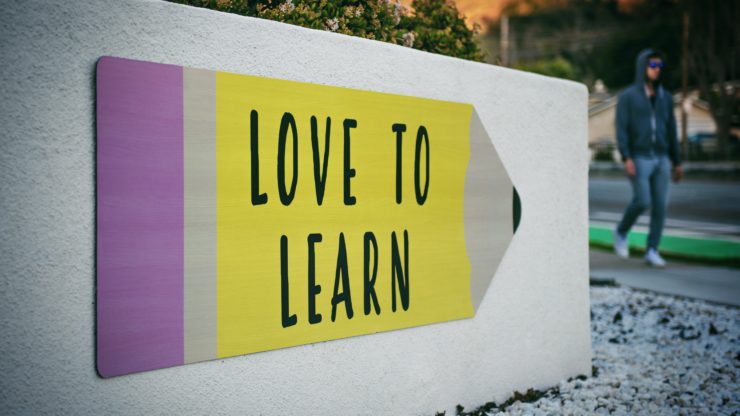Having a healthy self-esteem is essential for leading a fulfilling and successful life. It enables us to respect ourselves and others, lead a more productive life, and form healthier relationships.
It’s not something that comes naturally to everyone, so it’s important to learn how to boost self-esteem through personal development.
This comprehensive guide will help you understand what self-esteem is, what affects it, and how to take practical steps to improve it.
Jump to Section
Introduction
Self-esteem is a person’s overall opinion of themselves.
It’s a crucial component of mental health and can impact our lives in a variety of ways.
Low self-esteem can lead to depression, anxiety, loneliness, and even physical health problems.
On the other hand, having a healthy self-esteem can help us lead a more productive and meaningful life. It’s important to understand what self-esteem is and how to boost it through personal development.
What is Self-Esteem?
Self-esteem is an individual’s overall opinion of themselves. It’s how we view our own worth and value.
It’s also the way we talk to ourselves, think about ourselves, and perceive our capabilities. It’s a reflection of our beliefs about ourselves, which can be both positive and negative.
Factors that Affect Self-Esteem
There are several factors that can affect self-esteem, including genetics, environment, self-talk, and social media.
Genetics
Genetics can play a role in how we view ourselves. Studies have shown that people who have a family history of depression, anxiety, or other mental health issues are more likely to have lower self-esteem.
Environment
The environment we live in can also have an impact on self-esteem. If we’re constantly surrounded by negative people or criticism, it can lead to feelings of worthlessness and low self-esteem.
Self-Talk
The way we talk to ourselves can have a huge impact on our self-esteem. If we constantly put ourselves down or criticize ourselves, it can lead to low self-esteem.
It’s important to be aware of our self-talk and try to focus on the positive.
Social Media
Social media can also affect our self-esteem. Seeing other people’s “perfect” lives can lead to feelings of inadequacy and low self-worth.
It’s important to remember that social media is not an accurate reflection of reality and to focus on our own lives.
Practical Strategies to Boost Self-Esteem
There are several practical strategies that can help boost self-esteem. These include self-care, mindful practices, positive affirmations, setting goals, and finding support.
Self-Care
Self-care is one of the most important things we can do for our self-esteem. It involves taking care of our physical and mental health by engaging in activities that make us feel good.
This can include getting enough sleep, eating a healthy diet, exercising regularly, and taking time for ourselves.
Mindful Practices
Mindful practices such as meditation and yoga can help us stay present and be more aware of our thoughts and feelings. This can help us become more aware of our self-talk and work on shifting our perspective to a more positive one.
Positive Affirmations
Positive affirmations are statements that we repeat to ourselves to help boost our self-esteem. These can be anything from “I am capable of achieving anything I set my mind to” to “I am worthy of love and respect”. It’s important to find affirmations that work for you and practice them regularly.
Setting Goals
Setting goals is another great way to boost self-esteem. It gives us a sense of purpose and accomplishment when we achieve them.
It’s important to set realistic and achievable goals that will help us grow and progress.
Finding Support
Finding support is also essential for boosting self-esteem. Talking to friends and family or joining a support group can help us feel less alone and give us the opportunity to express our thoughts and feelings.
Challenges to Overcome
There are several challenges we must overcome in order to boost our self-esteem. These include limiting beliefs, comparison, and negative self-talk.
Limiting Beliefs
Limiting beliefs are beliefs that we have about ourselves that limit our potential. These can include beliefs such as “I’m not good enough” or “I don’t deserve to be successful”. It’s important to identify and challenge these beliefs in order to boost self-esteem.
Comparison
Comparison is another obstacle to self-esteem. It’s easy to compare ourselves to others and feel like we’re not good enough.
It’s important to remember that everyone is on their own journey and to focus on our own progress.
Negative Self-Talk
Negative self-talk is another challenge to self-esteem. It’s important to be aware of our thoughts and try to replace negative thoughts with more positive ones.
Tips to Improve Self-Esteem
Improving our self-esteem is a process that takes time and effort. It’s important to be patient with ourselves and focus on our progress.
It’s also helpful to practice self-compassion and recognize our strengths and successes.
FAQ
What are the benefits of having a healthy self-esteem?
Having a healthy self-esteem can have many benefits, including improved self-confidence, better relationships, increased productivity, and improved mental health.
What are some practical strategies to boost self-esteem?
Some practical strategies to boost self-esteem include self-care, mindful practices, positive affirmations, setting goals, and finding support.
What are some challenges to self-esteem?
Some challenges to self-esteem include limiting beliefs, comparison, and negative self-talk.

With a deep passion for personal development, Ben has dedicated his career to inspiring and guiding others on their journey towards self-improvement.
His love for learning and sharing knowledge about personal growth strategies, mindfulness, and goal-setting principles has led him to create My Virtual Life Coach.
Contact Ben at [email protected] for assistance.




